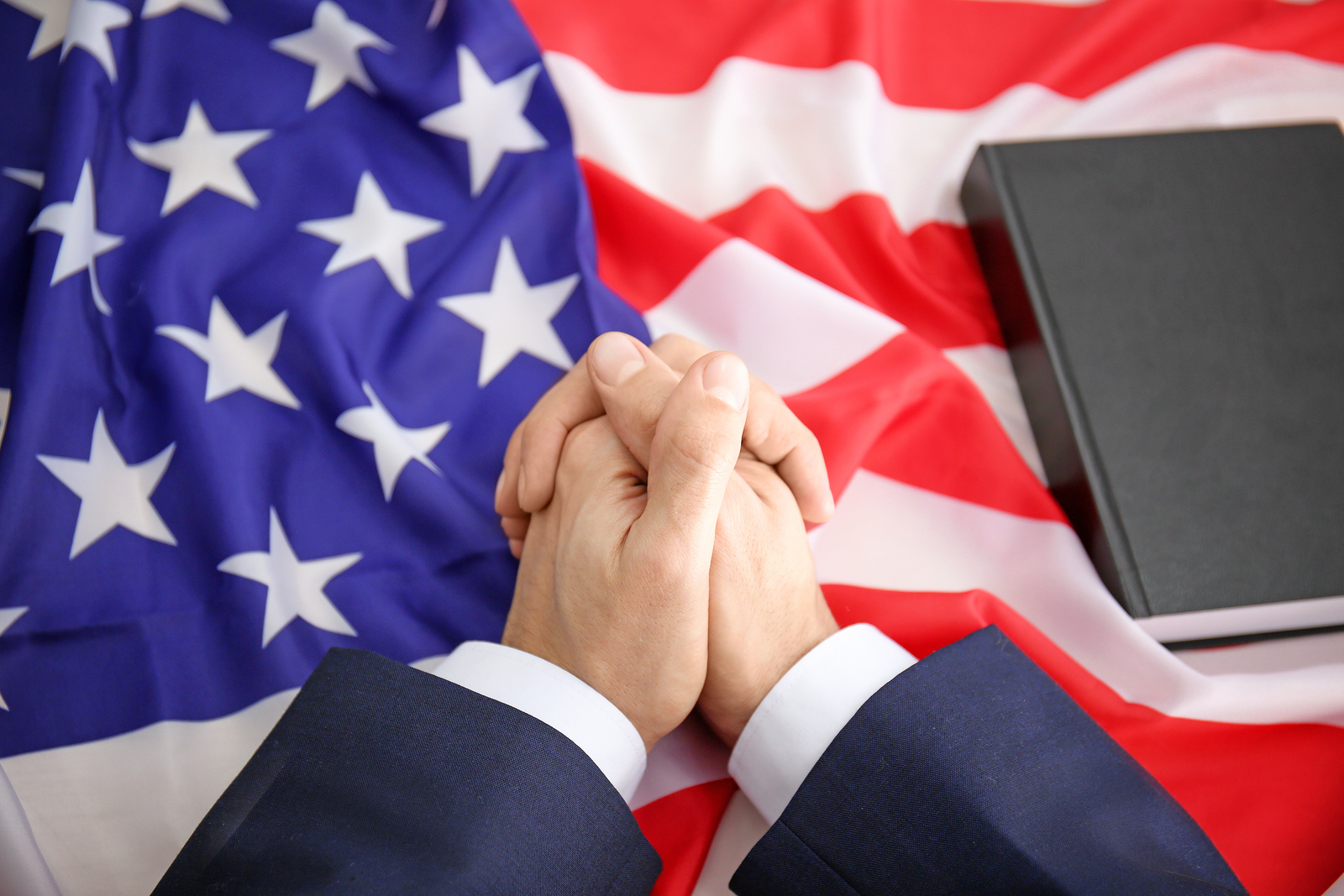Young evangelicals are bombarded with the questions and controversies surrounding the relationship between faith and politics. Twitter feeds are filled with stories and comments, endorsements and condemnations. It seems wise to disengage altogether and avoid conversations about God and politics, the two subjects you never bring up at a party.
But washing our hands of it all might only serve to raise the question, “Am I complicit in my silence?” What guidance do we find in the Bible? Solid arguments are made on many sides.
The consensus of Scripture is that God works through governments, and they serve an important purpose. Throughout the Old Testament, the people of God are found serving God by influencing governmental leaders, such as Joseph in Egypt, Daniel in Babylon, and numerous prophets speaking truth to powerful kings—some who were godly and many who were not.
The Apostle Paul consistently taught the early church to respect governing authorities and calls them servants of God. In 1 Tim. 2:1-4, Paul writes that Christians should pray with thanksgiving, making intercession for those who are in authority.
Disengaging doesn’t seem to be the advice found in the Bible. We should care about what the government does and who is leading us. How can a Christian engage in politics without falling into the division, debate and vitriol filling our Twitter feeds? Here are three things to remember.
We are People of Prayer. Jesus taught His disciples to pray for God’s glory and Kingdom to expand on earth as it is in heaven. Perhaps the most prevalent need among Christians is a deeper understanding of the power of prayer.
By teaching Christians to pray for those in authority, Paul reminds us that we have access to the most extraordinary power and spiritual resource available on earth. Prayer quiets the soul and allows anger to subside. Prayer draws us closer to God and how He sees the people and policies in question. God hears us when we pray, and He answers.
Begin with prayer when engaging in the politics. Rom. 13:4 refers to governmental leaders as servants of God. Let our concern over a policy come after sincere prayer for a person’s heart for God. Pray that a politician’s time in office is marked less by legislative accomplishments or political wins and more by an encounter with the divine God of the universe. Pray for them to have a deeper reverence for the things that are on the heart of God; such as peace and joy, justice and mercy, ministry to the marginalized, and the dignity of all people.
We are the Church. Christians know that government was instituted by God and public policy matters. We also know that God is in control and working through all sorts of institutions, but let’s not blur the line between them.
Scripture gives moral guidance that is true in every arena of life but also specific directions to Christians in the local church, and we need to recognize the difference. The desired outcome of the prayer for governmental leaders in 1 Tim. 2:1-4 is the freedom to “live a life of quiet godliness so that all people can come to the knowledge of the truth.” Government has a role to play, but God’s redemptive plan is most fully manifested in the life and work of local churches.
We are Peacemakers. So much of modern American politics is intent on conquering political opponents, and this isn’t always consistent with a Christian witness (and disastrous to our democracy).
Christians do understand that some ideas are truly bad, and historically, God used His people to challenge those ideas. That is still true at times today, but not as often as the internet would have us believe.
Let us remember that Jesus taught in Matt. 5:9, “Blessed are the peacemakers, for they will be called the sons of God.” The characteristic that most consistently identifies you as a child of God is being a peacemaker. Politics gives tools for compromise and consensus, but the Gospel gives the tools for lasting peace and reconciliation.
Christians have access to both politics and the Gospel. As Christians, let’s be peacemakers as we engage in politics today.
